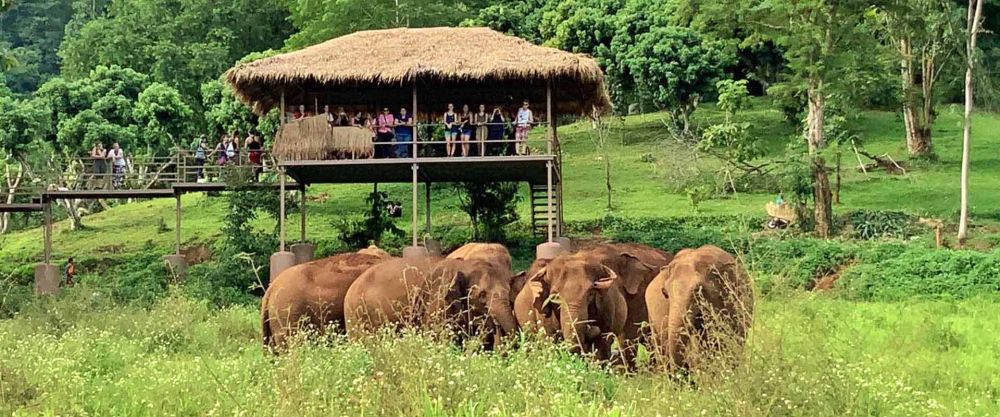

The Elephant Conservation Centre in Chiang Mai, Thailand, has been a significant attraction for tourists interested in wildlife conservation and the well-being of elephants. The history of tourism related to the Elephant Conservation Centre is deeply interwoven with the broader history of elephant conservation in Thailand. Initially, the primary purpose of such initiatives was to provide care and refuge to elephants that were left unemployed by logging bans introduced in 1989 to protect the nation's rapidly diminishing forests.
The rise of ethical elephant tourism in Chiang Mai can be attributed to the global increase in environmental awareness and the shift towards responsible travel practices. Tourists began seeking experiences that allowed them to connect with nature and contribute to conservation efforts. Elephant camps and sanctuaries started to gain popularity in the early 1990s, catering to this growing interest.
Over time, concerns about the well-being of the elephants and the sustainable practices of these camps led to a transformation in the tourism approach. The focus shifted from entertainment-based activities, such as elephant rides and shows, to more educational and conservation-oriented experiences. Visitors became more interested in learning about elephants, their natural behavior, and the challenges they face due to habitat loss and human conflict.
The Elephant Conservation Centre reflects this change, placing a strong emphasis on elephant health, rehabilitation, and ethical treatment. Innovations in elephant tourism at the centre include opportunities for tourists to observe elephants in their natural habitats, volunteer in conservation activities, and participate in educational workshops about elephant care.
Visitors to the Elephant Conservation Centre today can expect an informative and compassionate approach towards elephant tourism. They can engage in activities such as feeding and bathing elephants under the guidance of experienced caretakers, sometimes known as mahouts. The centre also runs various community and educational programs aimed at promoting sustainable coexistence between humans and elephants.
In recent years, the trend in elephant tourism has moved even further towards responsible and sustainable practices. This includes bans on elephant rides and a move towards smaller group interactions that are carefully managed to ensure the stress-free well-being of the animals. The Elephant Conservation Centre in Chiang Mai is at the forefront of these practices, offering a model for elephant tourism globally that prioritizes the dignity and health of these majestic creatures.
Looking ahead, the future of tourism at the Elephant Conservation Centre is one that continues to evolve with the latest in conservation science and ethical guidelines. The centre remains dedicated to providing a sanctuary for these animals and an educational experience for tourists that will foster long-term support for elephant conservation efforts in Thailand and beyond.